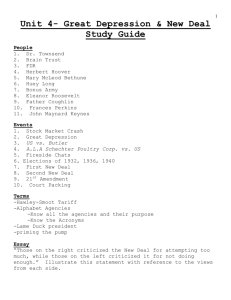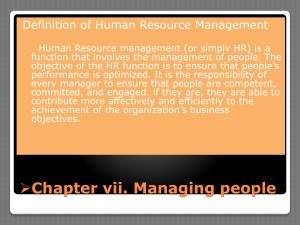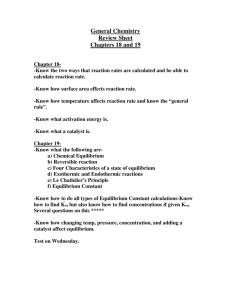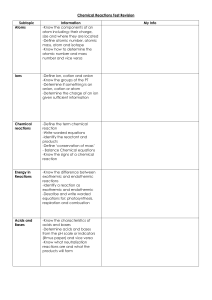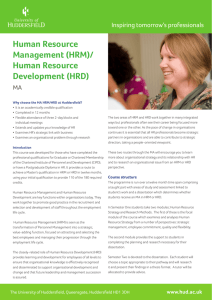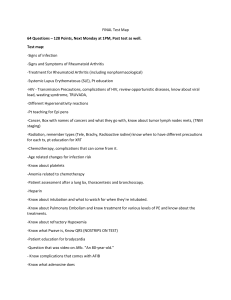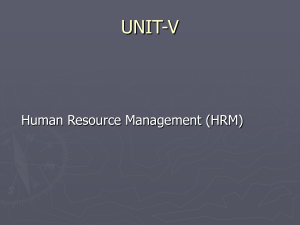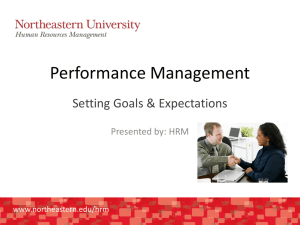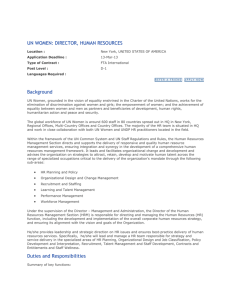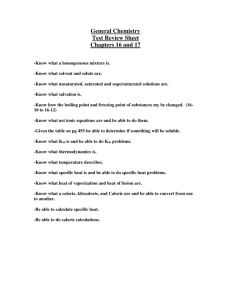Managing Human Resources in the Knowledge Based
advertisement
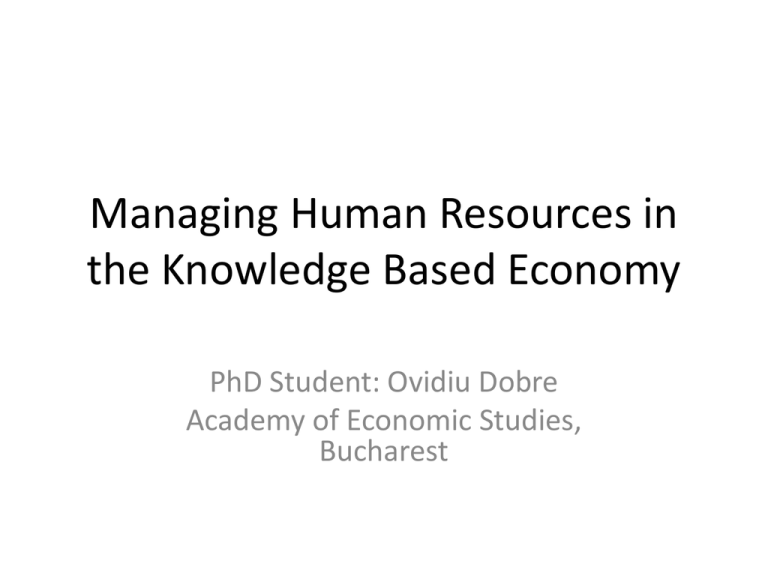
Managing Human Resources in the Knowledge Based Economy PhD Student: Ovidiu Dobre Academy of Economic Studies, Bucharest Introduction • In a knowledge-based economy, the competitive advantage is achieved through the capacity of organizations to adapt to the dynamic environment, by generating and applying new knowledge. • Knowledge economy organizations need human resource development professionals with different competencies and attitudes as compared to traditional environment. HRM in the Knowledge Economy • Human resources are defined as the accumulated stock of knowledge, skills and abilities possessed by employees, which should be turned into formal expertise by the organization. • Organizations and their employees have to acquire new skills and knowledge to satisfy the customers’ needs and compete in today’s dynamic business environment. Human Resource Development Nowadays, employees have to expand their knowledge and learn new skills on a continuous basis. Human resource development has to be a future oriented process. Employees have to: -Know why -Know how -Know whom Human Resource Development • HRD assumes that organizations can be seen as learning entities and the learning process of organizations and individuals are capable of influence and direction through planned interventions. • HRD activity should enhance the long term flexibility of organizations, increase their ability to compete in a dynamic environment and develop the personnel creativity. Knowledge Creation Process • Organizations are a reservoir of knowledge, deeply embodied in the individuals and in the culture that contains the principles encouraging the cooperation and knowledge transfer. • The creation of new knowledge is dependent on the existing capabilities of the organizations, as new knowledge is the result of recombination of current expertise. Tacit and Explicit Knowledge A significant amount of the organization’s knowledge is embodied in the firm’s personnel in the form of tacit knowledge. An organization can reduce its dependency on key personnel by implementing a proactive human resource strategy that encourages knowledge transfer and creation. The methods of decision making, training and solving programmed or non programmed problems can either block or foster the knowledge creation process. Building a learning organization • During the last decades mangers have been interested in implementing an organizational culture which stimulates people to improve their skills and knowledge, by learning continuously. • People are the essential component when building a learning organization, as they must be committed to learning and share what they have learned. • The organizational environment should facilitate individual and collective learning and develops an environment of trust and openness. Promoting Innovation • The organizations should develop dynamic capabilities to integrate, build and reconfigure internal and external competencies. • In the knowledge economy, no organization can have all the needed capabilities to develop sustainable competitive advantage. • A company needs to create external relationships to complement their internal capabilities. Conclusions • Implementing proper HRM strategies require an integrative approach, so that there are aligned horizontally with all human resource processes and vertically with the organizational goals. • The relationship between HRM and development has to do more with collaboration, rather than subordination. • Organizations competing in a knowledge economy need to create dynamic capabilities continuously, based on continuous learning and knowledge creation. THANK YOU FOR ATTENTION!
